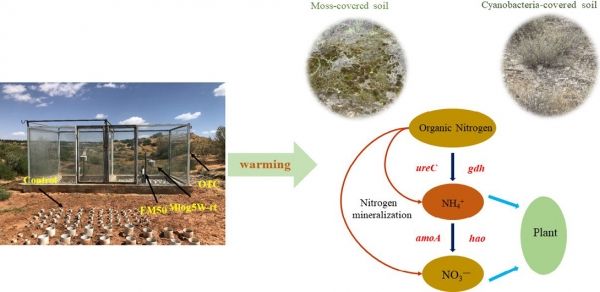Nitrogen (N) transformation, particularly Nitrogen mineralization (Nm) is closely linked to temperature, and ongoing climate warming will profoundly affect the mineralization process and alter ecosystem N cycling. However, little information is available on the mechanisms behind the response of Nm to prolonged warming coupled with drought in soils covered by biocrusts.
Recently, scientists from the Northwest Institute of Eco-Environment and Resources of the Chinese Academy of Sciences investigated the rate of soil N transformation, enzyme activity and gene abundance in response to warming coupled with reduced precipitation by using open top chambers.
They examined enzyme activity and microbial functional gene diversities of biocrusts along a succession sequence under increased temperatures and reduced precipitation in the Tengger Desert to determine the mechanisms underlying changes in soil net Nm rates in biocrusts-covered ecosystems.
Continue reading at Chinese Academy of Sciences
Image via Chinese Academy of Sciences


